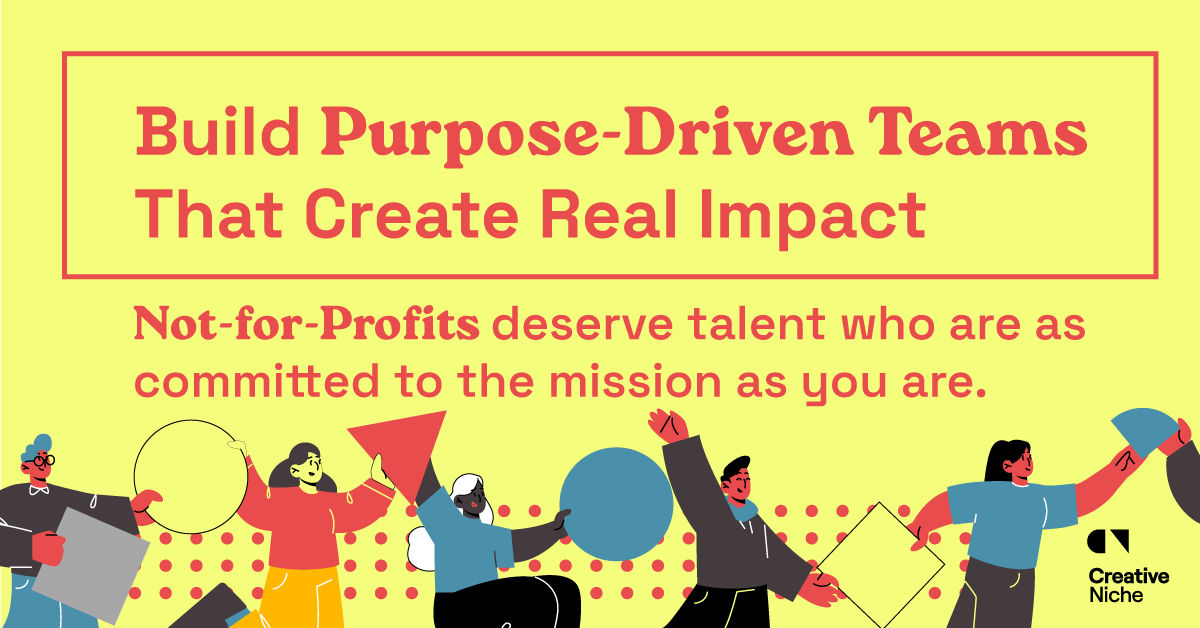

Future-Proof Your Career With These 11 In-Demand Skills
Mastering the skills that matter in today’s (and tomorrow’s) job market
Remember when a university degree was a guaranteed job offer? In 2024, it’s more about how you adapt and innovate. The job market now rewards the swift, the savvy, and the flexible. This guide isn’t just a rundown of skills—it’s your playbook for thriving in a world where career agility trumps all.
Whether you’re looking to pivot your career or simply stay ahead of the curve, these are the skills that matter most right now. Let’s explore the abilities that make you not just employable, but indispensable.
The top 7 in-demand skills for 2024
You know the basics—sales, communication, research, financial savvy. While still important, they're the old school tie of the job market. But as we gear up for 2024, there’s a new class of skills climbing the charts. We’re revealing the top skills that are turning heads in the workplace below.
Digital skills
Digital skills are like the Swiss Army knife of the modern workforce—versatile, indispensable and frankly, if you don’t have them, you’re more antique than asset. From making Google your best friend through SEO to keeping customers happy and loyal with savvy CRM strategies, mastering these tools is no longer a feather in your cap—it’s a cornerstone of your career toolkit.
Tools to master: Google Ads, Facebook Ad Manager, Salesforce, HubSpot, WordPress, Joomla
Career opportunities: Digital Marketing Manager, CRM Specialist, Content Strategist, Campaign Manager
Analytical skills for data
Data is the new oil, and analytical skills are your drill. Navigating through oceans of data to unearth actionable insights is more important than ever. With a keen ability to discern patterns and make sense of complex datasets, these skills empower you to visualize the story behind the numbers and measure performance effectively. Harnessing these capabilities means you can spot trends and opportunities that others might miss, positioning you as a key decision-maker in any business environment.
Tools to master: Looker, Tableau, Google Analytics, Excel
Career opportunities: Data Analyst, Business Intelligence (BI) Developer, Market Research Analyst
AI and machine-learning competence
Whether you like it or not, AI is reshaping the world as we know it. From revolutionizing customer interactions with clever bots to predicting market trends before they happen, AI represents a tidal wave of change. Jump on board, learn the ropes, and watch your workflow and career possibilities expand exponentially. More than staying relevant, it’s being a part of the future as it unfolds.
Tools to master: ChatGPT, Python, TensorFlow, IBM Watson
Career opportunities: All careers involving the use of a computer
Coding and programming proficiency
Gone are the days when coding was reserved for the elite few with computer science degrees. Learn to make your computer do the heavy lifting for you, automating the mundane, fine-tuning your digital presence, or building something groundbreaking. Whether it’s scripting simple automations or developing complex software, coding skills put you in the driver's seat of innovation.
Tools to master: Python, JavaScript, Ruby on Rails
Career opportunities: Software Developer, Web Developer, Systems Analyst
Expertise in management & building high-performing teams
Think of yourself as a team coach in the major leagues: scouting top talent, playing them in the right positions, and keeping everyone’s eyes on the championship. Managing today means creating an all-star lineup where everyone’s ready to knock it out of the park, whether it's nailing projects or innovating new products. You're not just filling roles; you're building a powerhouse.
By adding the resources required keep learning continuous, you’ll have a team that is constantly informed, on the cutting-edge of knowledge and ready to tackle challenges in a changing market.
Tools to master: BambooHR, Workday, Microsoft Teams, Lattice
Career opportunities: Team Leader, HR Manager, Talent Acquisition Specialist
Project management capabilities
Let’s be real, project management is your secret weapon for turning chaos into order. With tools like Monday.com and Asana, it’s like having a superpower for tracking tasks, rallying the troops, and crossing the finish line with time to spare. More than just moving tasks around a board, it's about mastering the art of herding cats and getting them to perform a synchronized dance.
Tools to master: monday.com, Asana, Trello
Career opportunities: Project Manager, Operations Manager, Agile Coach
Adaptability and flexibility
If COVID-19 taught us anything, it’s that things can go south, fast. But the real takeaway? Adaptability is critical. Rolling with the punches is equally essential in any workplace environment. It means you’re always ready to learn and quick to apply new skills, whether it’s pivoting project directions overnight or switching gears between tasks. In other words, it’s about thriving in flux and turning every challenge into an opportunity.
Tools to master: N/A
Career opportunities: Pretty much all of them! Every industry values a pro at pivoting.
Zooming into different career paths
Now that we've covered the seven in-demand skills for 2024, it's worth noting that the modern workplace often demands a mix of skills, regardless of your job title. Whether you're crafting campaigns, closing deals, or designing visuals, juggling a diverse skill set is key. Here’s how different professionals are using these skills to stay sharp and effective:
Marketing professionals
Data analysis
Essential for sifting through customer data to uncover actionable insights. Tools like Google Analytics and Tableau are staples for making informed marketing decisions.
AI
Use AI to automate routine tasks and personalize customer interactions. Tools like HubSpot and Marketo can streamline campaign management and enhance customer engagement.
Digital skills
Mastery of digital platforms is crucial. Whether it's managing content with WordPress or optimizing SEO strategies, staying digitally savvy keeps you ahead.
Sales professionals
Data analysis
Beyond just sales numbers, understanding patterns with tools like Microsoft Dynamics can help predict customer needs and optimize touchpoints.
AI
Leverage AI to craft personalized outreach quickly. Tools like Salesforce Einstein offer predictive analytics and customer insights to tailor your sales approach.
Adaptability & flexibility
Rapidly adapt to new sales technologies and strategies. Staying proficient with CRM systems like Zoho or sales automation tools ensures efficiency and responsiveness.
Design professionals
AI
Augment design capabilities with AI tools like Adobe Sensei, which help automate repetitive tasks and refine creative processes.
Project management
Keep projects on track and stakeholders happy. Tools like Trello and Asana are crucial for managing timelines and deliverables across various media.
Digital skills
Essential for using design software proficiently. Knowledge of Adobe Creative Suite and Sketch, alongside understanding web design principles, ensures high-quality outputs.
Remember, stacking your skillset isn’t just about keeping up—it’s about leading the pack. Embrace these tools, make them your own, and watch as they open new doors in your career.
Why future-proofing your career is important
Future-proofing your career is all about staying relevant, adaptable and in demand. It's a strategic move to ensure your skill set doesn't just meet the standards of today but leads the charge into tomorrow. Think of it as career insurance, investing in new skills and knowledge that can shield you against market shifts and technological advances.
Here’s why keeping your career toolkit updated is non-negotiable:
✔ Continuous growth:
Expand your capabilities continuously, ensuring you’re always an asset, never a liability.
✔ Versatility in roles
Diverse skills, like a salesperson learning to code, open up new paths and opportunities within any organizationorganisation.
✔ Avoiding becoming outdated
Today’s advantage could be tomorrow’s baseline. Staying ahead means you won't be caught off-guard by new industry standards or technologies.
Staying relevant requires a commitment to learning and flexibility, ensuring you're always ready, no matter how the tides turn.
How upskilling can affect business owners
Upskilling is also a strategic advantage for business owners. When you encourage and support your team in acquiring new skills, your entire business wins. Not only does this create a culture of continuous improvement, but it also equips your business with a versatile and agile workforce.
Here’s how upskilling impacts business owners:
✔ Business growth
Employees with a broader set of skills can wear multiple hats and drive innovation. This adaptability can be particularly useful for the unpredictable waters of market changes and customer demands.
✔ Efficiency boost
Fewer specialists mean fewer bottlenecks. A team that can confidently cross-function limits downtime and accelerates productivity, often leading to faster project turnovers and reduced costs.
✔ Attracting talent
When hiring, making upskilling a priority signals that your business values growth and development, making you more attractive to top talent who seek employers that invest in their careers.
For startups and established businesses alike, cultivating a culture of learning and flexibility not only boosts capability, but also builds the resilience needed to thrive in today’s dynamic market.
Skilling up for tomorrow, starting today
As we wrap this up, remember: staying competitive involves being proactive. Mastering new skills, whether in digital technology, data analysis or AI, positions you well for future shifts in your industry. Embrace continuous learning and remain adaptable. This way, you're not just reacting to changes, you’re actively preparing for the unpredictable.
That’s right, up-skilling isn’t just a one-time event, but a continuous process that enriches your professional life, making you a versatile and invaluable asset to any team. You can do so by staying ahead of technological trends and adapting to new methodologies to ensure that your career remains dynamic and progressive.
So, what new in-demand skills will you learn to invest in your future?








